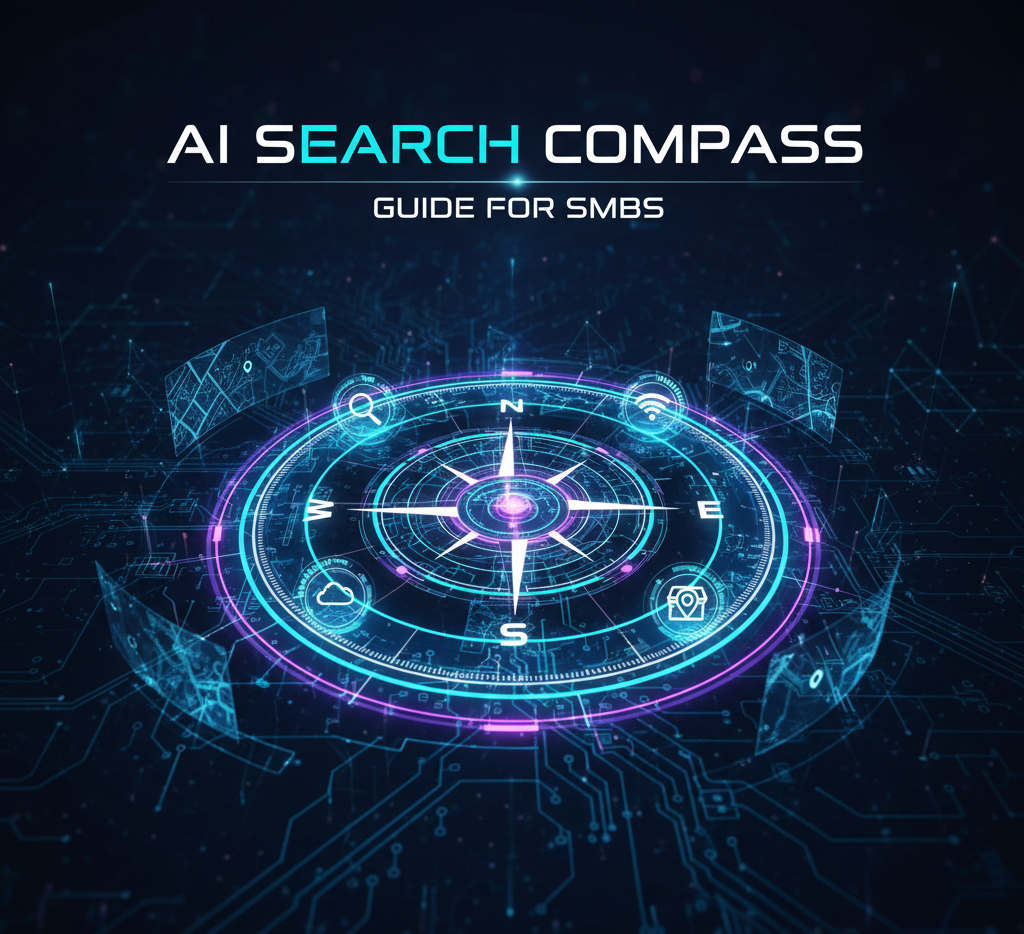Understanding SEO Reporting Basics for Businesses
SEO reporting might sound like just another tool for keeping tabs on website numbers, but there is real power behind the spreadsheets. Companies with a strong SEO strategy can see a return up to 12.2 times their marketing spend . Most people think it is all about piling up traffic, but the hidden value is how these reports actually shape business strategy and uncover new opportunities.
Table of Contents
Quick Summary
| Takeaway | Explanation |
|---|---|
| Effective SEO Reporting Tracks Key Metrics | Monitoring metrics like organic traffic and keyword rankings provides insight into website performance. |
| Diagnostic Insights Enhance Strategy | Advanced reports reveal user behavior patterns, identifying optimization opportunities for better engagement. |
| SEO Reports Guide Resource Allocation | Understanding which marketing channels perform well helps businesses invest wisely in digital efforts. |
| Predictive Analytics Drive Strategic Decisions | Leveraging historical data allows businesses to anticipate trends and adjust strategies proactively. |
| Cross-Departmental Integration of SEO Insights | Sharing SEO data across teams fosters collaboration and ensures alignment on digital strategies for enhanced performance. |
What is SEO Reporting and Why is it Essential?
SEO reporting represents a critical analytical process that allows businesses to track, measure, and understand their website’s performance in search engine results. By systematically collecting and interpreting data about search visibility, organic traffic, keyword rankings, and user engagement, companies gain actionable insights into their digital marketing effectiveness.
Understanding the Core Purpose of SEO Reporting
At its fundamental level, SEO reporting transforms raw digital metrics into meaningful strategic intelligence. Businesses require comprehensive visibility into how their online presence performs across search platforms. Learn more about advanced SEO strategies to understand the nuanced world of search performance tracking.
Key components of effective SEO reporting include:
- Traffic Analysis : Examining organic search visitor volume and behavior
- Keyword Performance : Tracking rankings and visibility for target search terms
- Conversion Tracking : Understanding how search traffic translates into business outcomes
The Strategic Value of Systematic SEO Reporting
According to Michigan State University , SEO reporting is essential because it provides concrete evidence of content marketing effectiveness. By generating detailed reports, businesses can demonstrate how their digital strategies increase organic traffic, improve brand awareness, and enhance overall online credibility.
The most sophisticated SEO reports go beyond simple number tracking. They offer diagnostic insights that help organizations understand complex user behaviors, identify potential optimization opportunities, and make data-driven marketing decisions. Successful businesses use these reports to continuously refine their digital strategies, ensuring they remain competitive in an increasingly dynamic online marketplace.
This table compares the core benefits and strategic values of systematic SEO reporting as described in the article to help businesses understand the broader organizational impact.
| Benefit | Description |
|---|---|
| Evidence of Content Marketing | Demonstrates how digital strategies increase organic traffic, brand awareness, and online credibility |
| Diagnostic Insights | Helps organizations understand user behaviors and identify optimization opportunities |
| Data-Driven Decision Making | Enables continuous refinement of marketing strategies based on actionable insights |
| Predictive Analytics | Allows businesses to anticipate trends and adjust strategies proactively |
| Cross-Departmental Collaboration | Encourages sharing of SEO insights across teams for improved digital performance |
Key Metrics and Concepts in SEO Reporting
SEO reporting encompasses a complex ecosystem of metrics that provide deep insights into a website’s digital performance and search engine visibility. Understanding these metrics allows businesses to make informed strategic decisions about their online presence and content marketing efforts.
The following table summarizes the most critical SEO metrics discussed in the article along with their definitions, providing a quick reference for understanding essential SEO reporting indicators.
| Metric | Definition |
|---|---|
| Organic Traffic Volume | Total number of visitors arriving through search engines |
| Keyword Rankings | Position of website pages for specific search terms |
| Click Through Rate (CTR) | Percentage of users who click on search results |
| Bounce Rate | Percentage of users who leave the website after viewing one page |
| Conversion Tracking | Measurement of how search traffic translates into business outcomes |
Core Performance Indicators in SEO Reporting
The most critical metrics in SEO reporting focus on measuring organic search performance and user engagement. Learn more about service business SEO strategies to understand how these metrics translate into actionable business intelligence.
Key performance indicators businesses should track include:

- Organic Traffic Volume : Total number of visitors arriving through search engines
- Keyword Rankings : Position of website pages for specific search terms
- Click Through Rate (CTR) : Percentage of users who click on search results
- Bounce Rate : Percentage of users who leave the website after viewing one page
Advanced Analytical Insights
According to Digital.gov , comprehensive SEO reporting extends beyond basic traffic measurements. Advanced reporting techniques analyze complex interactions between search behavior, content relevance, and user experience.
Sophisticated SEO reports provide diagnostic insights that reveal intricate patterns in user engagement. These reports help businesses understand not just how many visitors arrive, but why they arrive, what content attracts them, and how effectively that traffic converts into meaningful business outcomes. By continuously monitoring these nuanced metrics, organizations can refine their digital strategies, optimize content, and improve their overall search engine performance.
Understanding the Impact of SEO Reports on Business Strategies
SEO reporting serves as a strategic compass for businesses, transforming raw digital data into actionable intelligence that drives comprehensive marketing and operational decisions. By providing granular insights into online performance, these reports enable organizations to adapt and optimize their digital presence with unprecedented precision.
Strategic Decision Making Through SEO Intelligence
Explore advanced digital marketing techniques to understand how data-driven strategies can revolutionize business growth. SEO reports offer critical strategic advantages by revealing:
- Market Positioning : Understanding competitive landscape and search visibility
- Content Performance : Identifying high-performing and underperforming content assets
- User Behavior Insights : Revealing audience engagement patterns and preferences
- Resource Allocation : Guiding investments in digital marketing and content development
Quantifying Business Impact
According to Lamar University , SEO strategies can generate a return on investment up to 12.2 times the marketing expenditure. This remarkable potential underscores the transformative power of comprehensive SEO reporting.
Beyond mere numbers, sophisticated SEO reports provide predictive analytics that help businesses anticipate market trends, understand customer intent, and proactively adjust their digital strategies. By translating complex digital signals into clear strategic recommendations, these reports become essential tools for businesses seeking to maintain competitive advantage in an increasingly digital marketplace.
How SEO Reporting Helps in Decision Making
SEO reporting transforms complex digital data into strategic insights that empower businesses to make informed, targeted decisions across multiple operational domains. By translating raw performance metrics into actionable intelligence, these reports serve as a critical navigation tool for organizational growth and digital strategy optimization.
Navigating Strategic Business Choices
Discover strategies for e-commerce optimization to understand how data-driven insights can transform business performance. SEO reporting facilitates decision making by providing clarity in several key areas:
- Marketing Resource Allocation : Identifying which channels and content types generate maximum engagement
- Product Development : Understanding user search behaviors and content preferences
- Competitive Intelligence : Revealing market positioning and potential opportunities
- Budget Planning : Quantifying return on digital marketing investments
Translating Data into Actionable Strategy
According to Cornell University’s blog , SEO insights can significantly enhance website visibility and lead generation. The most effective SEO reports go beyond simple numerical tracking, offering predictive and prescriptive analytics that guide strategic planning.
By interpreting complex digital signals, businesses can anticipate market trends, understand customer intent, and proactively adjust their strategies. This approach transforms SEO reporting from a passive measurement tool into an active strategic asset, enabling organizations to make precise, data-driven decisions that directly impact their digital performance and overall business growth.
Integrating SEO Insights for Improved Business Performance
Successful businesses recognize that SEO insights are more than just numerical data points they represent a comprehensive strategic framework for understanding and enhancing digital performance. By systematically integrating these insights across organizational functions, companies can create a holistic approach to digital optimization and growth.
Transforming Insights into Organizational Strategy
Explore advanced search query strategies to understand how granular digital intelligence can drive comprehensive business improvements. Effective integration of SEO insights involves:
- Cross Departmental Alignment : Sharing SEO data across marketing, product development, and customer service teams
- Continuous Learning : Using performance metrics to refine ongoing digital strategies
- Customer Intent Mapping : Understanding user search behaviors to improve product offerings
- Predictive Performance Modeling : Utilizing historical data to forecast future digital trends
Operational Performance Enhancement
According to Digital.gov , successful digital performance requires collecting and analyzing search data with a customer-centric approach. Strategic SEO integration transforms raw metrics into actionable intelligence that drives meaningful business outcomes.
By treating SEO insights as a dynamic, interconnected system rather than isolated data points, businesses can create adaptive strategies that respond rapidly to market changes.
 This approach enables organizations to optimize their digital presence continuously, align their offerings with customer expectations, and maintain a competitive edge in an increasingly complex digital marketplace.
This approach enables organizations to optimize their digital presence continuously, align their offerings with customer expectations, and maintain a competitive edge in an increasingly complex digital marketplace.
Turn Powerful SEO Reporting Into Real AI Search Visibility
Understanding your website data is just the first step. The real challenge is using those SEO report insights to stay visible when AI search engines are changing the rules. If you are in a high-stakes industry like e-commerce, finance, education, or healthcare, you already know how quickly traditional search traffic can slip away as AI results become the norm. Missing even subtle user engagement trends or search shifts could mean losing your competitive edge. Let our AEO Method and advanced optimization strategies at Peak Digital Pro
help you turn reporting into ongoing growth.
and advanced optimization strategies at Peak Digital Pro
help you turn reporting into ongoing growth.

Are you ready for the next evolution of search marketing? Start transforming your SEO metrics into increased visibility and qualified leads right now. See how businesses like yours use advanced SEO strategies and targeted e-commerce optimization techniques to win trusted placement in AI Overviews and ChatGPT. Take the next step and protect your search position with Peak Digital Pro.
Frequently Asked Questions
What is SEO reporting?
SEO reporting is an analytical process that allows businesses to track, measure, and understand their website’s performance in search engine results by collecting and interpreting data about search visibility, organic traffic, keyword rankings, and user engagement.
Why is SEO reporting essential for businesses?
SEO reporting is essential because it provides insights that help businesses demonstrate the effectiveness of their digital marketing strategies, improve brand awareness, and enhance online credibility.
What key metrics should I track in SEO reporting?
Key metrics to track include organic traffic volume, keyword rankings, click-through rate (CTR), and bounce rate, as these indicators provide valuable insights into search performance and user engagement.
How can SEO reporting improve decision-making in business?
SEO reporting enhances decision-making by providing actionable insights that guide resource allocation, competitive intelligence, product development, and budget planning, allowing businesses to adapt their digital strategies effectively.







